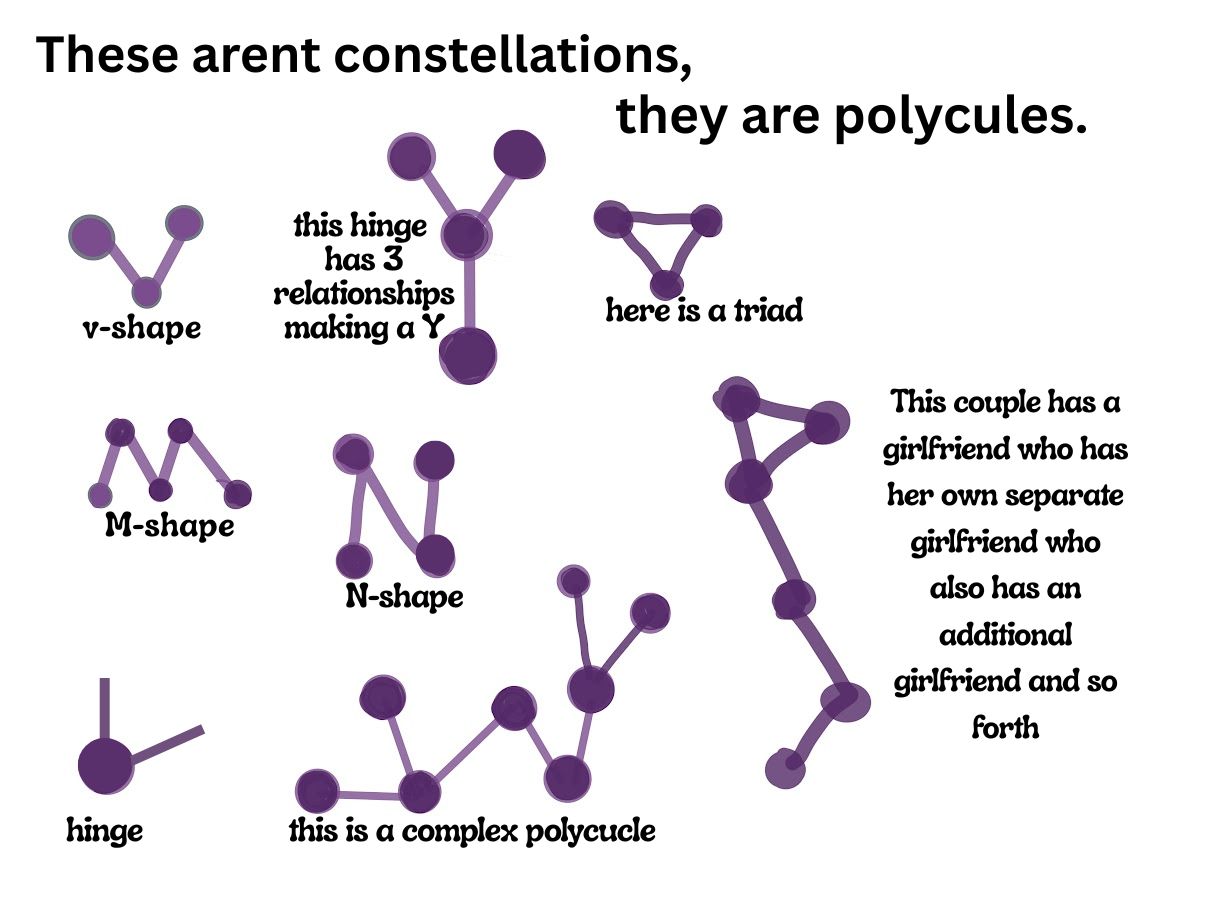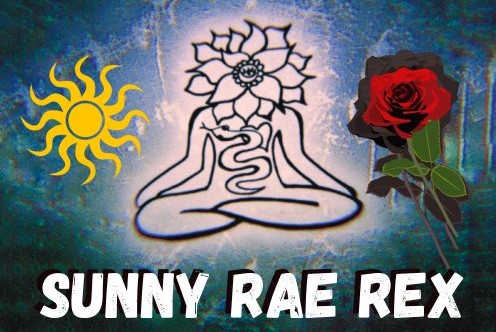Introduction
Married and Bisexual is a vibrant community for married bisexual folks, especially women, to connect, share, and live authentically. We reject societal pressures that force us into rigid molds, like hiding our bisexuality to fit heteronormative expectations. Instead, we celebrate our identities and build relationships grounded in mutual respect, consent, and autonomy. This article tackles the mostly toxic practice of unicorn hunting, a harmful dynamic that objectifies bisexual women and undermines ethical non-monogamy. We aim to shed light on its issues, respect those who identify as “unicorns,” and champion diverse, empowering relationship styles that honor everyone’s agency.
Understanding Bi-Erasure
Bi-erasure — the dismissal or invalidation of bisexuality—creates a world where bisexual people struggle to claim their identity. About 80% of bisexuals are in straight relationships, often concealing their attraction to multiple genders due to societal pressure to appear “straight.” Many bisexual people assume everyone feels multi-gender attraction but they “choose” one side, mistakenly believing they’re straight. Even within the LGBTQ+ community, bisexuality is sometimes rejected, with calls to “pick a side.” This fuels stereotypes, sexualization, and fetishization, making it harder for bisexuals—especially women—to live authentically. By addressing bi-erasure, we pave the way for relationships that celebrate our true selves, free from judgment or objectification.
What Is Unicorn Hunting?
Unicorn hunting occurs when an established couple—typically a straight man and a bi woman—seeks a third partner, often a bisexual woman, to join their relationship, either for a committed triad or casual swinging. The “unicorn” is usually expected to equally love and engage with both partners, often only as a unit, to preserve the couple’s existing dynamic. This setup prioritizes the couple’s needs, assuming control over interactions will manage jealousy or insecurity. It leads to the unicorn feeling used and abused. The term “unicorn” implies rarity and objectification, reducing a person to a fantasy role rather than acknowledging their desires and autonomy. On dating apps, couple accounts seeking a “third” can mislead users, sometimes hiding their intent until later, leading to hurt and mistrust.
The Problem with Unicorn Hunting
Unicorn hunting often involves rigid expectations, like requiring the third to fit perfectly into the couple’s pre-set rules, such as engaging only together or avoiding outside relationships (a misuse of “polyfidelity”). This leaves the “unicorn” feeling like an accessory, not a valued partner. The dynamic is frequently tied to the One Penis Policy (OPP), where the man permits his partner to explore relationships with women but not men, sometimes while pursuing women himself. The OPP devalues same-sex relationships, limits autonomy, and can reflect insecurities or transphobia—where do trans individuals fit in such rules? These practices reinforce toxic heteronormative biases and the notion that men own women and control their desires, undermining equitable connections.
Some People like this
Some people like to be used. Thats fine. Some people enjoy being unicorn hunted If someone is going to engage in unicorn hunting activity, they need to do it in a way where they get MEGA SUPER CONSENT before doing so. Unicorn hunting is basically power exchange, so everyone needs to follow whatever anagram of safety they decide to follow for bdsm stuff, and discuss whats ok, and hard and soft limits, and how they are gonna safe word themself to safety if they start to feel unsafe.
Key Issues
- Fetishization: Bisexual women are hypersexualized, seen as tools for threesomes rather than individuals with unique desires, perpetuating bi-erasure. Again, some people like this, but you have to get consent before engaging in this type of behavior.
- Gender Norms: Unicorn hunting prioritizes the man’s comfort, reinforcing toxic traditional gender roles and marginalizing diverse identities, especially trans or nonbinary individuals.
- Couples Privilege: Established couples may make decisions without the third’s input, creating controlling dynamics that harm everyone's well-being.
- Unicorns Who Do Exist Are Basically Consenting To A Power Exchange, And People Don't Realize That: So follow the power exchane rules accordingly, have a system in place for everyones consent to be clear and solid
Ethical Triads: Building Authentic Connections
Ethical triads should form naturally through mutual respect and consent, not force. They rely on:
- Open Communication: All partners share desires and boundaries honestly, respecting “no” as a valid choice to build trust.
- Diverse Connections: Ethical non-monogamy thrives on unique, organic relationships free from preconceived roles. Forcing equal attraction ignores natural evolution.
- Interconnected Bonds: Triads involve separate relationships (A+B, B+C, A+C, A+B+C), balancing autonomy and shared love.
- Organic Growth: Connections arise naturally, often through friendships, not by seeking someone to fit a mold.
Beyond Triads: Diverse Polycules
Polyamory offers varied structures, all rooted in communication and consent:

- V-Shaped Relationships: One person maintains separate relationships with two others, who may not connect directly.
- Z/N Configurations: Two couples connect through the women’s romantic bond/hinge, showcasing diverse intimacy.
- Y-Shaped Relationships: The hinge has three separate relationships.
- Networks/Webs: Multiple individuals form complex, adaptable connections based on compatibility.
- Kitchen Table Polyamory: All members share a communal space, though this isn’t for everyone.
- Parallel Polyamory: Individuals have separarte relationships from each other, and their metamours do not interact at all or very little.
- Hierarchical vs. Non-Hierarchical: Hierarchical structures prioritize certain relationships; non-hierarchical ones treat all equally.
- Solo Polyamory: Individuals maintain independence while forming meaningful connections.
- Relationship Anarchy: Connections form based on personal desires and boundaries, free from societal norms.
Respecting “Unicorns”
- Agency and Consent: Those identifying as “unicorns” deserve full agency and enthusiastic consent, with boundaries respected.
- Rejecting Objectification: While some may enjoy specific roles, generalizing “unicorns” as objects is harmful. Respect unique desires.
- Embracing Choices: Some “unicorns” prefer swinging or multiple partnerships, which should be celebrated without judgment.
Conclusion
Ethical non-monogamy invites us to explore love beyond societal norms, but adding a “third” requires questioning outdated gender and sexuality beliefs. Authentic connections thrive on communication, respect, and autonomy, creating spaces where everyone’s agency is celebrated. Ethical triads, formed organically, contrast with relational unicorn hunting’s toxicity. As married bi women, we reject objectification, championing environments where our true selves are cherished. Together, we build a community thriving on mutual respect and the boundless possibilities of ethical non-monogamy, supported by resources that empower and educate without toxicity.
Glossary: Ethical Non-Monogamy Terms
- Bi-Erasure: Invalidating or dismissing bisexuality, often by assuming bisexuals must “choose” one gender or that their identity isn’t real.
- Unicorn Hunting: A couple seeking a third partner (typically a bisexual woman) to fit rigid expectations, prioritizing the couple’s needs over the third’s autonomy.
- Unicorn: The third person in a triad, often a bisexual woman, expected to fulfill a couple’s fantasy, a term implying objectification.
- Polyfidelity: A closed polyamorous relationship where members agree not to pursue outside connections, sometimes misused in unicorn hunting.
- One Penis Policy (OPP): A rule where a man allows his partner to explore relationships with women but not men, reinforcing heteronormative biases.
- Polycule: A group of people interconnected through romantic or sexual relationships, from triads to complex networks.
- Metamour: The other person your partner is dating.
- Triad: A three-person polycule where all members are romantically or sexually connected, ideally formed with mutual consent.
- Ethical Non-Monogamy (ENM): Relationship structures involving multiple sex partners, whether formally or casually, based on open communication, consent, and respect.
- Couples Privilege: When an established couple’s needs and decisions take precedence over a new partner’s, common in unicorn hunting.
- V-Shaped Relationship: One person (the hinge) is romantically linked to two others who are not connected to each other.
- Z Configuration: Two couples linked by one shared romantic relationship, often between women, forming a “Z” shape.
- Network/Web: A complex polycule with multiple individuals connected romantically or sexually in varied ways.
- Kitchen Table Polyamory: A polycule where all members are comfortable sharing space and conversations, though not for everyone.
- Parallel Polyamory: Individuals have separarte relationships from each other, and their metamours do not interact at all or very little.
- Hierarchical Polyamory: A structure prioritizing certain relationships (e.g., primary) over others (e.g., secondary).
- Non-Hierarchical Polyamory: A structure treating all relationships equally, with no ranking.
- Solo Polyamory: Maintaining independence (often living alone) while forming romantic or sexual connections.
- Relationship Anarchy: Forming relationships based on personal desires and consent, free from societal norms or labels.
- Comphet (Compulsory Heterosexuality): Societal pressure forcing individuals, especially women, to adopt heterosexual norms and relationships, often suppressing bisexual or queer identities.
- Asexual Bi-Romantic: A person who experiences romantic attraction to multiple genders but lacks sexual attraction, combining asexuality and bi-romanticism.
- Bisexual: A person attracted to two or more genders, embracing a fluid spectrum of romantic or sexual interest.
- Pansexual: A person attracted to others regardless of gender, valuing personality and connection over gender identity.
- Asexual: A person who experiences little or no sexual attraction, though they may have romantic or emotional connections.
- Bi-Romantic: A person who experiences romantic attraction to two or more genders, separate from sexual orientation.


